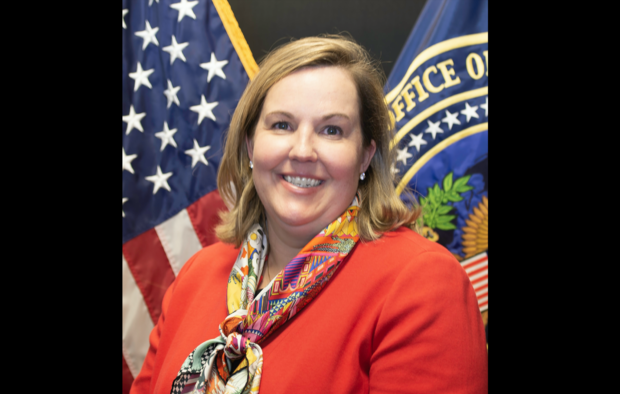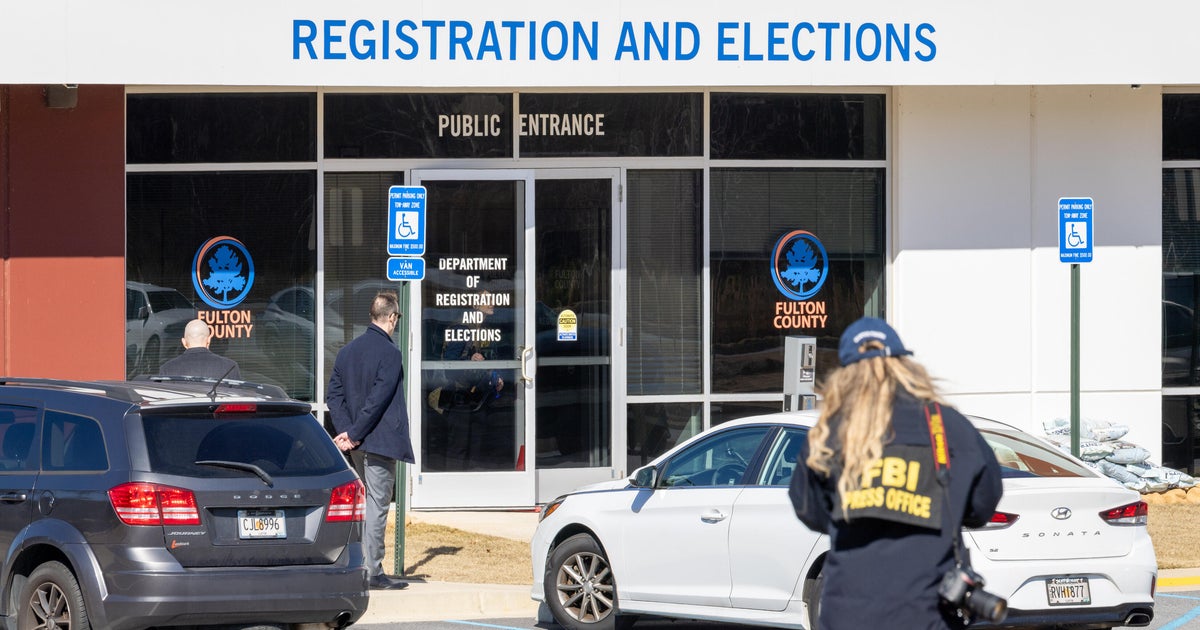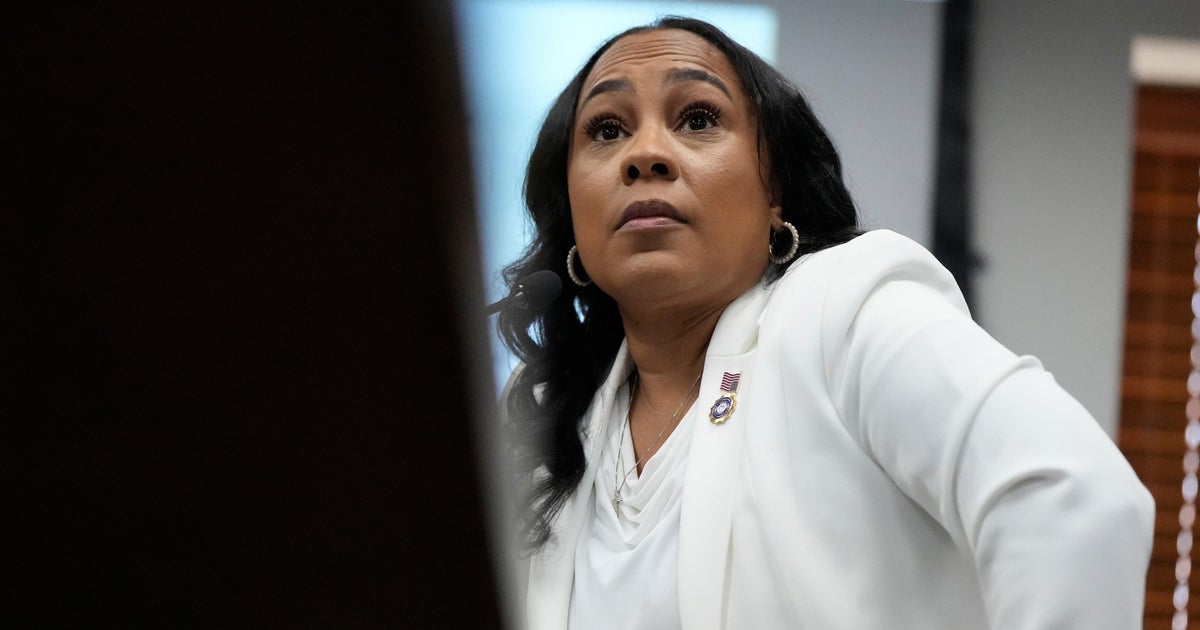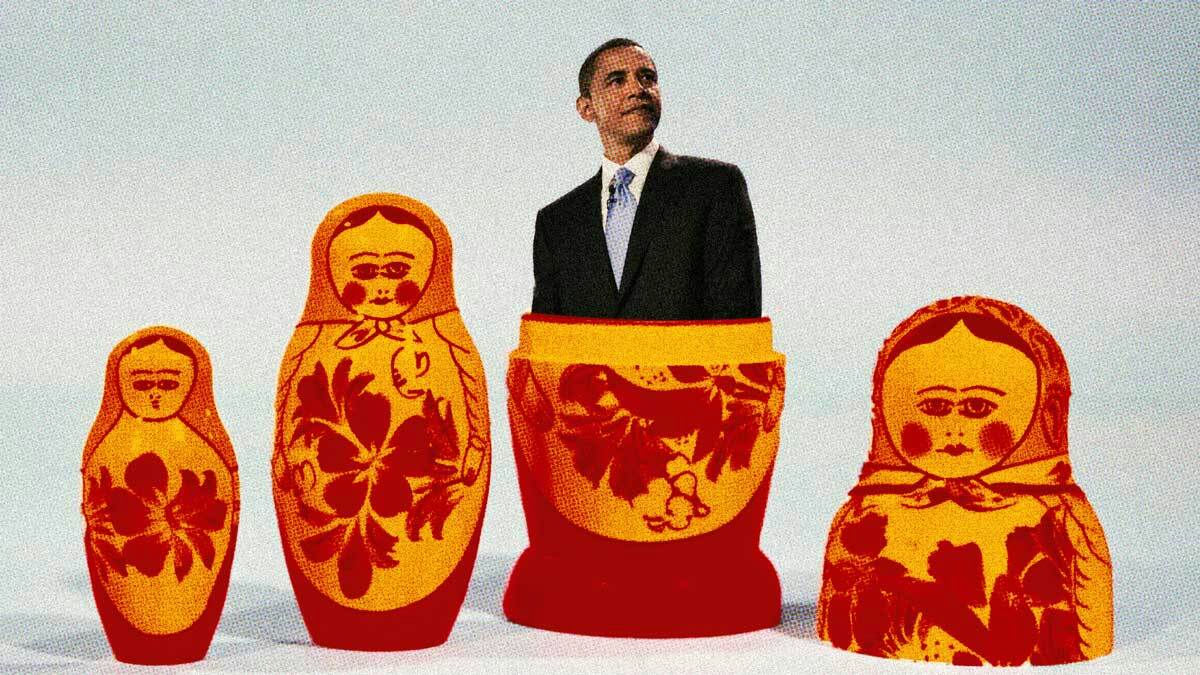Top election security official details past, current and future threats - Intelligence Matters
The intelligence community's top election security official says no other country influenced the 2016 presidential election in a manner comparable to the systemic and wide-ranging campaign waged by Russia, contrary to allegations made by President Trump and some Republicans that Ukraine engaged in election interference against Mr. Trump's campaign.
"Countries seek to influence each other all the time. And when it becomes particularly problematic is when it's covert, when it's subversive, when it's illegal," said Shelby Pierson, who serves as the intelligence community's election threats executive. "And we do not assess that any other country influenced the United States election in 2016 on the scale of what the Russians did."
In an interview with Intelligence Matters host and CBS News senior national security contributor Michael Morell, Pierson, who was named to the newly created role in July by then-Director of National Intelligence Dan Coats, declined to discuss whether Russian intelligence operatives were behind the seeding or propagation of the notion that Ukraine sought to interfere in 2016.
"[W]e can't speak about our current classified assessment on this situation," she said. "But for us, all roads lead back to Russia in this particular circumstance. And it's something that we continue to monitor at this time."
As impeachment proceedings – which have centered on Mr. Trump's pressure campaign on Ukraine's political leadership – gathered steam in the fall, allies of the president argued that Mr. Trump was justified in withholding military aid from Kiev out of concerns about corruption and whether Ukraine meddled against his campaign in 2016. They pointed to anti-Trump comments made by Ukrainian officials on social media and efforts to discredit Paul Manafort, who was Mr. Trump's campaign chairman.
Numerous current and former officials, including Pierson, have since countered the idea that the actions of some Ukrainian officials were comparable to the top-down interference campaign that U.S. intelligence agencies have since concluded was ordered by Russian president Vladimir Putin and carried out by various instruments of the Russian government.
In her public testimony during House-led impeachment hearings in November, Fiona Hill, a Russia expert who served on the National Security Council, said suggestions that Ukraine intervened in a similar manner was "a fictional narrative" that bolstered Moscow's efforts to deflect blame for its actions.
And last month, FBI Director Christopher Wray said in an interview that the bureau had "no information that indicates that Ukraine interfered with the 2016 presidential election."
Pierson, a career intelligence officer, was named the National Intelligence Manager for Russia, Europe and Eurasia at the Office of the Director of National Intelligence (ODNI) in November of 2016, beginning the job roughly two weeks before President Obama asked the intelligence community to begin working on the document now known as the 2017 Intelligence Community Assessment (ICA).
While she did not have a direct hand in drafting the ICA – which laid out the intelligence community's conclusions about the scope and aim of Russia's activities in 2016 – Pierson's experience with disseminating its findings led to her subsequent role as crisis manager for election security during the 2018 midterm elections.
Russians engaged "less" in 2018 than in 2016, Pierson said, in part because of the midterms' lower profile, and in part because U.S. agencies coordinated more extensively to blunt foreign interference efforts. The Department of Homeland Security helped states better protect their voting infrastructure. The FBI also engaged more robustly with social media companies, and U.S. Cyber Command, Pierson said, took a more active role "in terms of managing the information space even before it got stateside." (Cyber Command took a Russian troll farm known to have led disinformation efforts in 2016 offline in the run-up to the 2018 midterms).
Pierson said the intelligence community, alongside its partner agencies in the U.S. government, was preparing to face a "watershed moment" during the 2020 presidential election, and that influence efforts since 2016 have grown broader, more complicated, and, in the cases of some adversaries, more sophisticated.
"[F]oreign influence and foreign interference is a 24/7, 365 endeavor," she told Morell, "I certainly think that we are looking at considerable foreign influence challenges."
Some operations, she said, were overt, "and that's natural and understood behavior across nations."
"And then what happens that I think is the concern for us is: When does that sponsorship…of an adversary become more murky, if not fully concealed, to the recipient of the information?" she continued. "[T]here is perhaps not wholesale interference, but you have this broader ecosystem and landscape of influence operations that are seeking to sway the populace in a direction. And that's probably I think most of the continuum of what we saw in 2018 and 2019 and certainly what we're concerned about going into 2020," Pierson said.
U.S. government officials have issued repeated warnings that countries including Russia, China, Iran and North Korea – as well as non-state 'hacktivists' – were likely to target the upcoming election in pursuit of their own respective objectives.
Pierson told Morell a key part of the post-2016 adjustments made to election security efforts would involve notifying victims of cyber compromise more promptly and fulsomely. In November, a group of federal agencies, including ODNI, released a framework for how disclosures to private entities, congressional stakeholders, presidential candidates and the public would work.
"[T]his has been a continuum of introspection and activity coming out of 2016," Pierson said. "What we're trying to do now is handle this in real time…we're not trying to simply intellectually look back on what occurs in 2021 past inauguration."
"What we want to do is be able to affect this in real time and so that we have fair, safe elections from foreign interference," she said.
This is the latest installment of a continuing series on "Leadership of the IC," featuring currently-serving senior leadership within the U.S. intelligence community. For much more from Michael Morell's conversation with Shelby Pierson, you can read the transcript here and subscribe to Intelligence Matters here.





